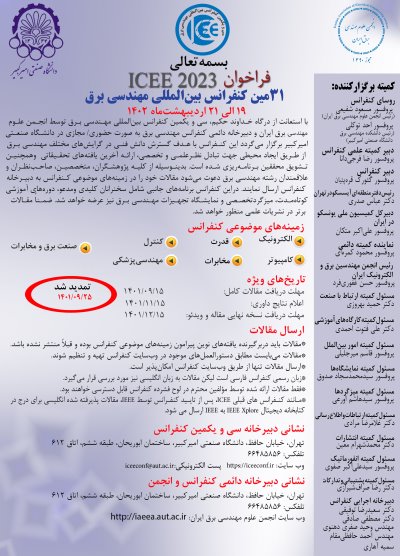0% Complete

نویسندگان :
کلمات کلیدی :
چکیده :
لیست مقالات بایگانی شده
حجت قیمت گر - پریسا قربانی
Mojtaba Moradi-Sepahvand - Turaj Amraee
Jasem Shahsevani - Reza Beiranvand
Siavash Yari - Hamid Khoshkhoo
Kobra Siahi - Mohammad Reza Arvan - Vahid Behnamgol - Mahdi Mosayebi
Nasim Ensanseft - Ali Chaibakhsh
Abbas Kakoolvand - Maryam Imani - Hassan Ghassemian
Mohammadreza Sheykh - Heidar Ali Talebi - ّIman Sharifi
Maryam Sadeghi - Masoud Johar - Mahdi Shabany





